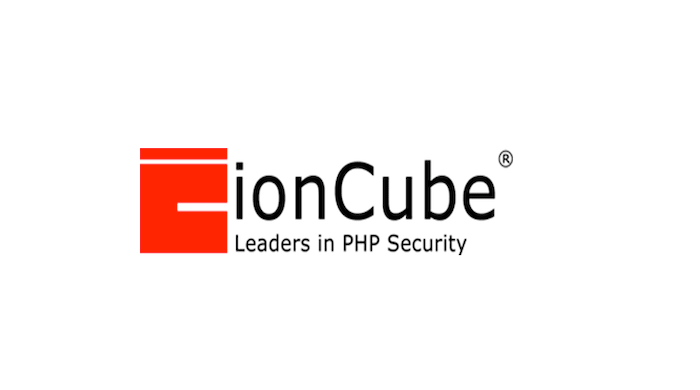How To Install ionCube PHP Encoder on Ubuntu 24.04 LTS

In this tutorial, we will show you how to install ionCube PHP Encoder on Ubuntu 24.04 LTS. In the ever-evolving landscape of web development, protecting your PHP code is paramount. The ionCube PHP Encoder stands as a robust solution for developers seeking to safeguard their intellectual property. This comprehensive guide will walk you through the process of installing ionCube PHP Encoder on Ubuntu 24.04, ensuring your PHP applications remain secure and performant.
Understanding ionCube PHP Encoder
ionCube PHP Encoder is a powerful tool that encrypts PHP scripts, shielding your code from unauthorized access and reverse engineering. By encoding your PHP files, you can distribute your software while maintaining the confidentiality of your source code. This is particularly crucial for commercial applications or proprietary systems where code protection is a top priority.
Prerequisites
Before diving into the installation process, ensure your system meets the following requirements:
- Ubuntu 24.04 LTS installed and updated
- Root or sudo access to your server
- A working PHP installation (preferably PHP 8.2 for optimal compatibility)
- Apache or Nginx web server configured
It’s important to note that while Ubuntu 24.04 ships with PHP 8.3 by default, ionCube Loader currently supports up to PHP 8.2. Therefore, we’ll need to install PHP 8.2 alongside the existing PHP version.
Step-by-Step Installation Guide
1. Update Your System
Begin by ensuring your system is up-to-date. Open a terminal and run:
sudo apt update && sudo apt upgrade -yThis command refreshes your package lists and upgrades all installed packages to their latest versions.
2. Install PHP 8.2
Since Ubuntu 24.04 comes with PHP 8.3 by default, we need to add a repository to install PHP 8.2:
sudo add-apt-repository ppa:ondrej/php
sudo apt update
sudo apt install php8.2 php8.2-cli php8.2-common php8.2-curl php8.2-mbstring php8.2-mysql php8.2-xmlAfter installation, verify the PHP version:
php -vYou should see output indicating PHP 8.2.x is installed.
3. Download ionCube Loader
Navigate to a directory where you can download files, such as /tmp:
cd /tmpDownload the ionCube Loader package:
sudo wget https://downloads.ioncube.com/loader_downloads/ioncube_loaders_lin_x86-64.tar.gz4. Extract the ionCube Files
Extract the downloaded archive:
sudo tar xzf ioncube_loaders_lin_x86-64.tar.gzThis will create an ‘ioncube’ directory containing the loader files.
5. Locate PHP Extension Directory
Find the PHP extension directory by running:
php -i | grep extension_dirNote down the path, which should look similar to /usr/lib/php/20220829.
6. Copy ionCube Loader to PHP Extension Directory
Copy the appropriate ionCube loader file to your PHP extension directory:
sudo cp ioncube/ioncube_loader_lin_8.2.so /usr/lib/php/20220829/Ensure you’re using the correct filename that matches your PHP version.
7. Configure PHP to Use ionCube Loader
Create a new configuration file for ionCube:
sudo nano /etc/php/8.2/mods-available/ioncube.iniAdd the following line to the file:
zend_extension = /usr/lib/php/20220829/ioncube_loader_lin_8.2.soSave and close the file.
8. Enable ionCube Loader
Enable the ionCube module for PHP:
sudo phpenmod ioncube9. Restart Web Server
If you’re using Apache:
sudo systemctl restart apache2For Nginx with PHP-FPM:
sudo systemctl restart php8.2-fpm
sudo systemctl restart nginx10. Verify Installation
Create a PHP file named info.php in your web server’s document root:
sudo nano /var/www/html/info.phpAdd the following content:
<?php
phpinfo();
?>Save the file and access it through your web browser (http://your_server_ip/info.php). Search for “ionCube” to confirm the loader is installed and active.
Troubleshooting Common Issues
ionCube Loader Not Detected
If ionCube doesn’t appear in phpinfo():
- Double-check the path in the ioncube.ini file
- Ensure the .so file has the correct permissions
- Verify that the PHP version matches the ionCube Loader version
PHP Version Mismatch
If you encounter errors related to PHP version incompatibility:
- Confirm you’ve downloaded the correct ionCube Loader for your PHP version
- Check if multiple PHP versions are installed and ensure you’re configuring the correct one
Web Server Configuration Issues
For Apache or Nginx configuration problems:
- Review your web server’s error logs for specific issues
- Ensure PHP is properly integrated with your web server
- Restart the web server after making configuration changes
Optimizing Performance with ionCube
To ensure optimal performance while using ionCube Loader:
1. Enable Opcache
Opcache can significantly improve PHP performance. Enable it by adding the following to your php.ini file:
opcache.enable=1
opcache.memory_consumption=128
opcache.interned_strings_buffer=8
opcache.max_accelerated_files=4000
opcache.revalidate_freq=60
opcache.fast_shutdown=1
opcache.enable_cli=12. Adjust Memory Limits
Depending on your application’s needs, you may need to increase PHP’s memory limit:
memory_limit = 256M3. Fine-tune ionCube Settings
ionCube provides several configuration options to optimize its performance. Consult the official documentation for advanced settings that may benefit your specific use case.
Security Considerations
While ionCube enhances code security, it’s crucial to implement additional measures:
1. Regular Updates
Keep ionCube Loader, PHP, and your server software up-to-date to protect against vulnerabilities.
2. File Permissions
Ensure encoded files and the ionCube Loader itself have appropriate permissions to prevent unauthorized access.
3. Secure Communication
Implement HTTPS to encrypt data transmission between clients and your server.
Congratulations! You have successfully installed IonCube. Thanks for using this tutorial for installing IonCube PHP Encoder on Ubuntu 24.04 LTS system. For additional help or useful information, we recommend you check the official IonCube website.